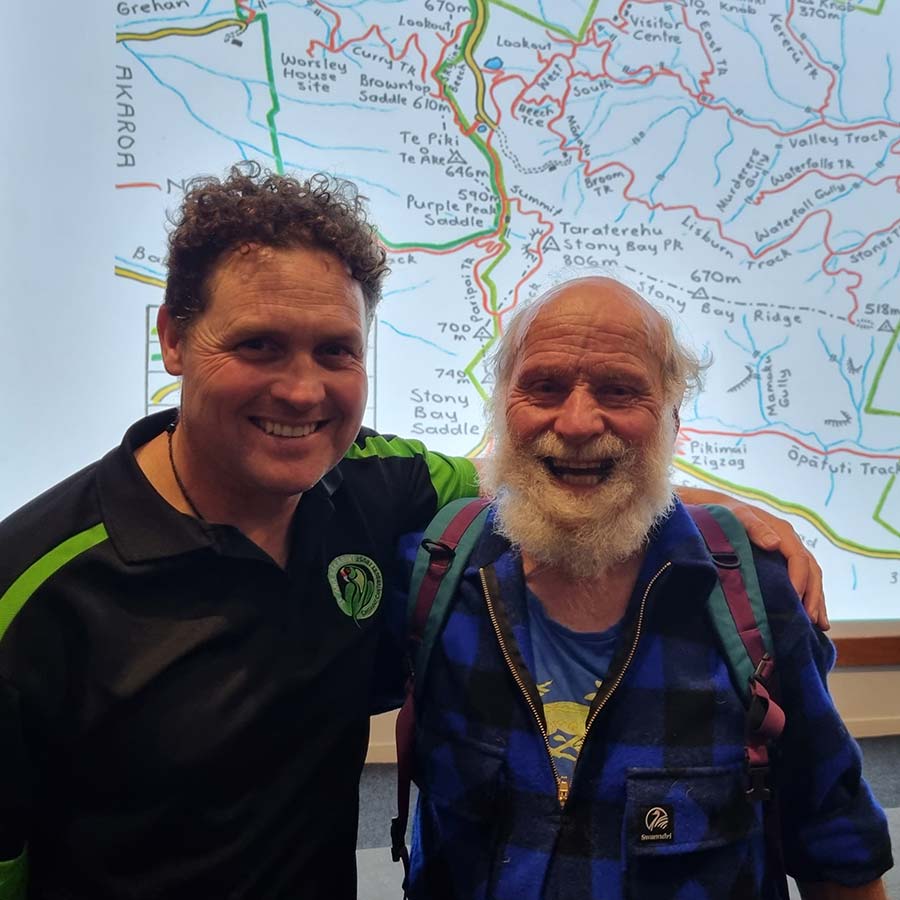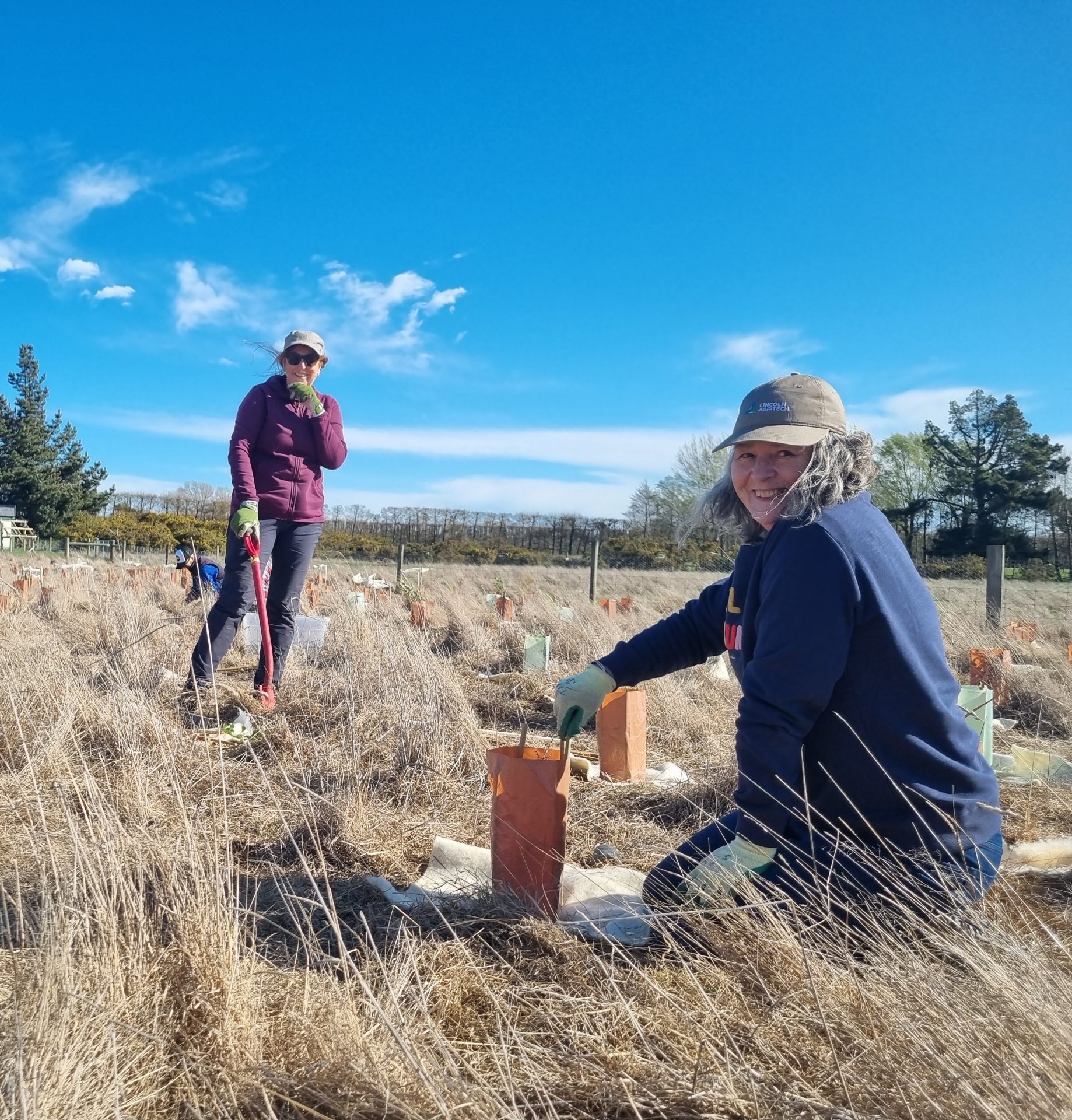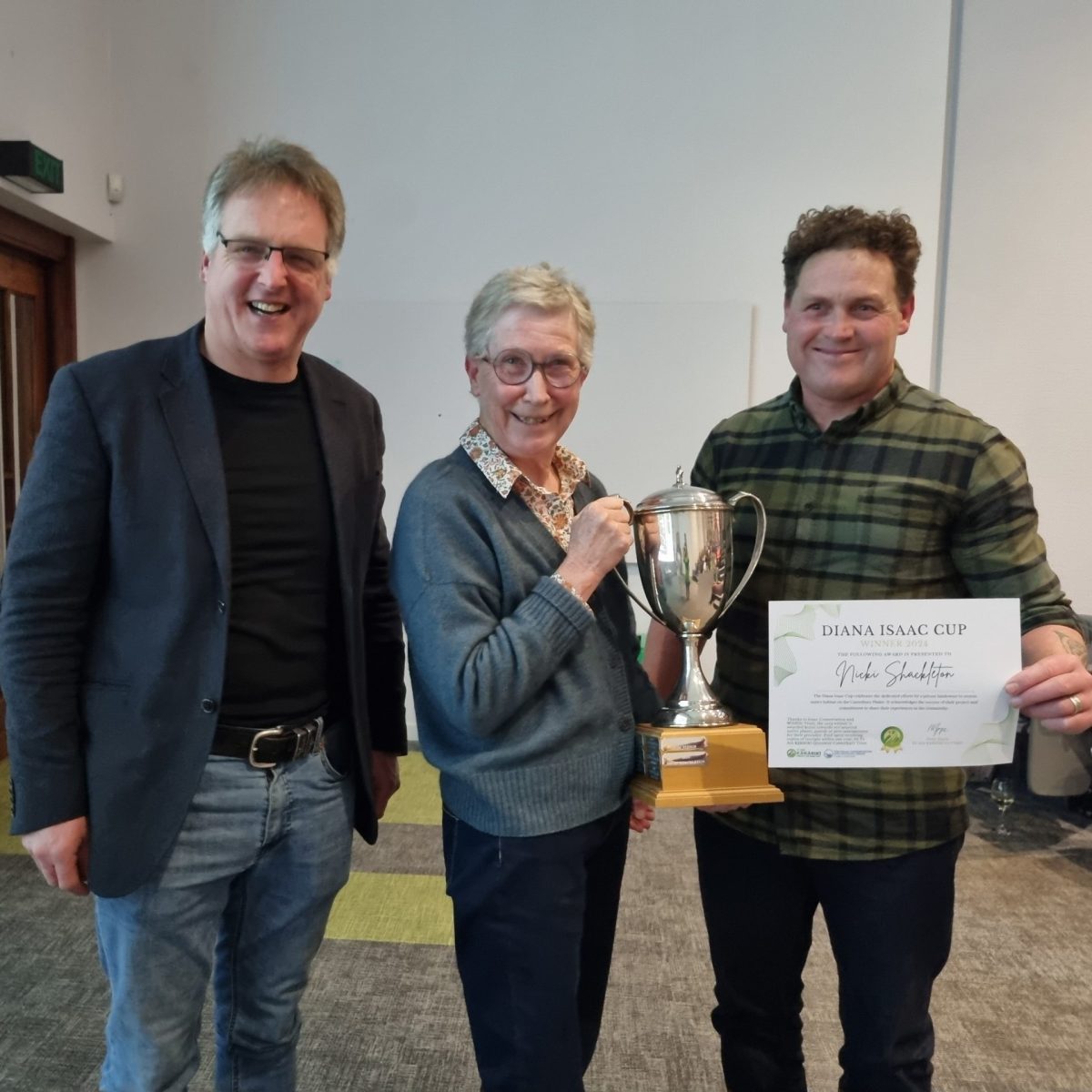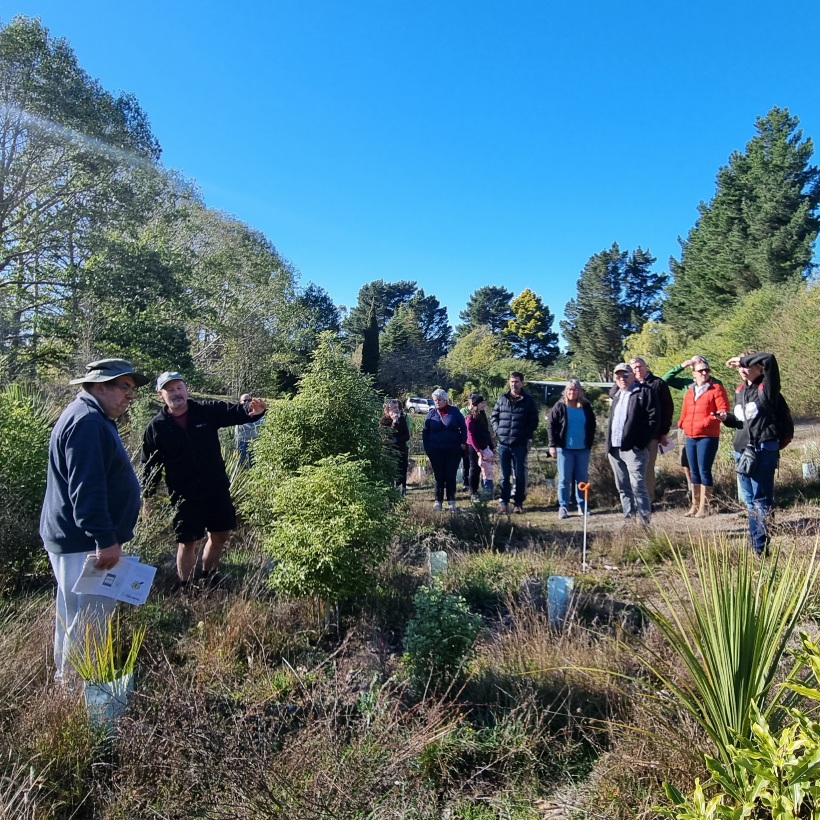Around 100 people turned out for the annual Friends of Te Ara Kākāriki meeting held last month at Lincoln University. Together with long-term supporters, landowners, volunteers, and newer faces, Selwyn District Council Mayor Sam Broughton and several councillors also attended.
Te Ara Kākāriki Co-Chair Craig Pauling opened the evening by reflecting on the trust’s progress in 2021. Across 8 community and corporate planting days, and 11 Kids Discovery Plantout days, 1000 volunteers and students were involved in planting efforts. When combined with the efforts of our kaimahi (restoration field workers) funded by the Jobs For Nature programme, all up 27,682 native seedlings were planted last year. There are now 115 Greendots spread across the Canterbury Plains which together they make up an area of 33 hectares, with 147,771 seedlings planted in total across these sites.
Then the Diana Isaac Te Ara Kākāriki Cup for 2022 was presented by Bruce Rule from the Isaac Conservation & Wildlife Trust to landowner Wim Nijhof for his outstanding restoration efforts. Wim’s property now has over 4,000 plants, and he has had to overcome the challenges of a site that can very wet, and quite dry, as well as undertaking maintenance. He described it as “hard work but very satisfying” noting it only takes a couple of years for birds to come back.
The highlight of the night though was very much the engaging and inspirational guest speaker Hugh Wilson who has become a conservation legend as Hinewai Reserve Manager. Despite the early scepticism from neighbours and even some fellow botanists of his belief that gorse would give way to native forest, Hugh proudly explained that 35 years on there now wouldn’t be a neighbour who isn’t completely behind what’s happening on Hinewai.
Hugh’s positivity was infectious as he described how unbelievably efficient nature is at producing seeds and efficiently dispersing them via birds and the wind. Aside from around the visitor centre and homestead, there has been very little planting done at Hinewai. Hugh acknowledged that while Banks Peninsula is probably one of the fastest naturally regenerating areas, he thought people would be surprised just how much of New Zealand is ready and ripe for it. When it comes to the Canterbury Plains where “natural ecosystems have been obliterated”, Hugh explained that the progress of nature alone would be incredibly slow, and the vegetation wouldn’t return to the way it previously was because of all the exotic plants. Therefore, Te Ara Kākāriki’s approach of planting the area makes enormous sense Hugh said, while encouraging the trust to maintain their high standards when it comes to the critical aspect of eco-sourcing plants. Everyone left the evening thoroughly inspired by Hugh’s marvellous talk.





